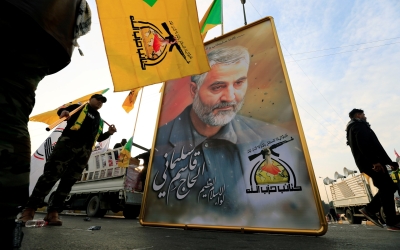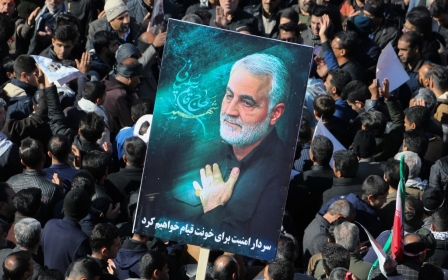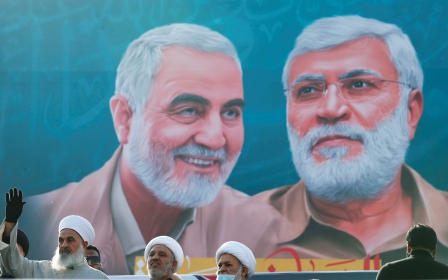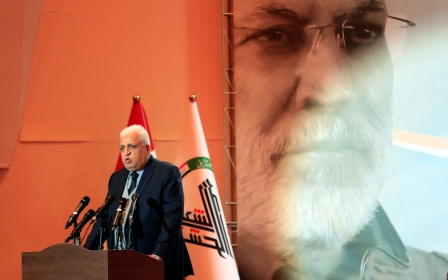Iraq court issues warrant for Trump's arrest over Muhandis killing
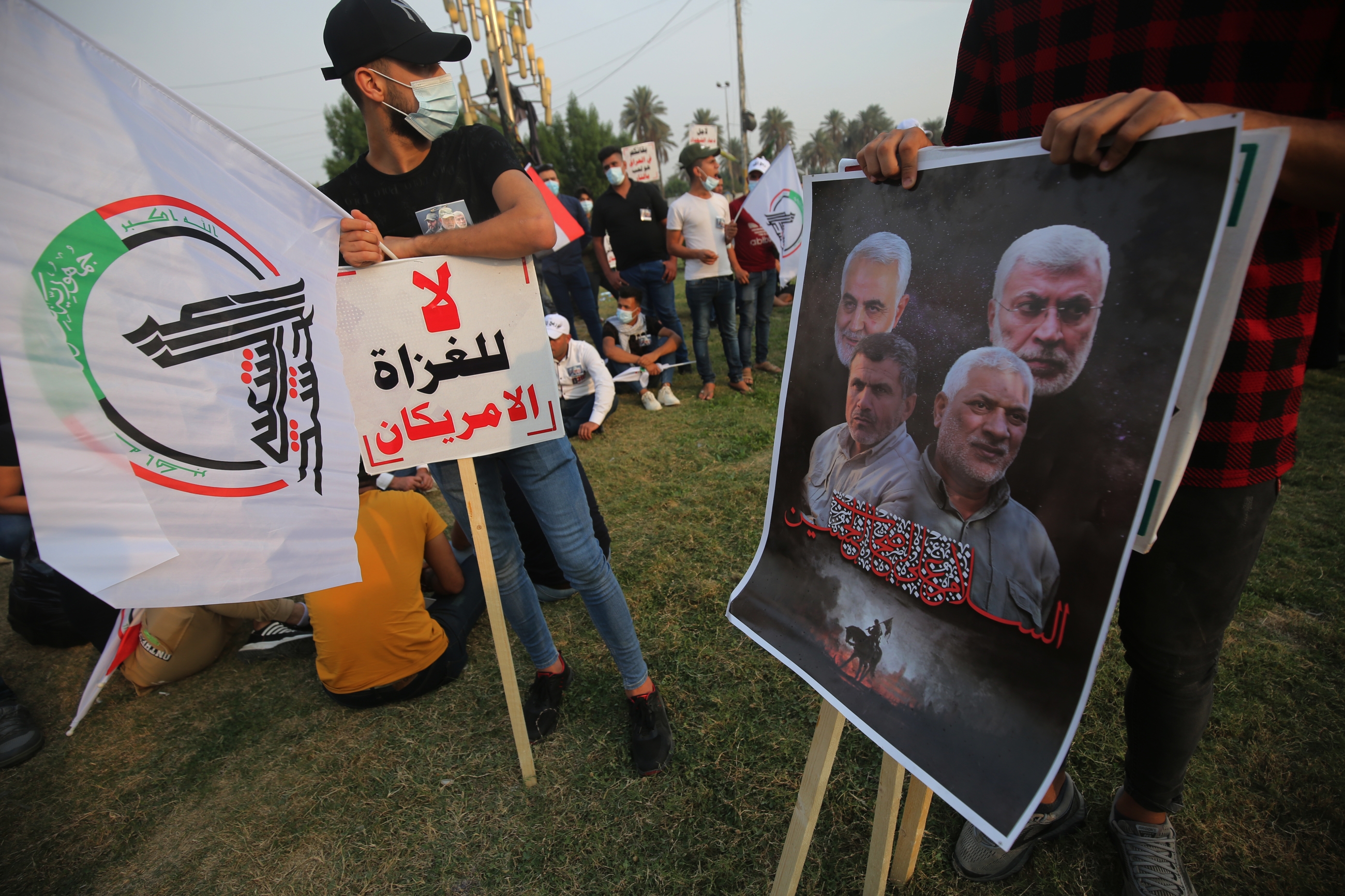
An Iraqi court has issued an arrest warrant for outgoing US President Donald Trump over the killing of Iraqi militia leader Abu Mahdi al-Muhandis in a January 2020 air strike that also killed high-ranking Iranian commander Qassem Soleimani.
The Baghdad court issued the warrant for Trump's arrest under Article 406 of the Iraqi penal code, which provides for the death penalty in all cases of premeditated murder, according to the judiciary.
According to the Iraqi News Agency, the court said the warrant was issued "after the judge recorded the statements of the personal claimants from the family of Abu Mahdi al-Muhandis".
"The investigation procedures are continuing to find out the other participants in the execution of this crime, whether they are Iraqis or foreigners."
Muhandis, who had been deputy head and a key figure in the Hashd al-Shaabi paramilitary network, was killed in a drone strike on 3 January 2020 in a cavalcade outside Baghdad airport.
Trump later boasted that the strike on Muhandis and Soleimani had taken out "two for the price of one".
'The first step to take revenge'
Tariq Harb, a senior lawyer and constitutional expert in Iraq, was quoted by the English-language National Iraqi News Agency as saying that actually implementing the arrest warrant was likely to prove very difficult.
"It is not permissible to hold a trial in absentia except after the methods of summoning to attendance have been exhausted - which are arrest and detention - and this procedure is necessary to complete the requirements of the trial that will take place later," he said.
Former Iraqi Deputy Prime Minister Bahaa al-Araji welcomed the news of the arrest warrant on Twitter, describing it as "a victory for the Iraqi state" and "the first step to take revenge for the violation of sovereignty and the blood of the martyrs who fell".
However, political analyst Shaho al-Qaradaghi questioned why the courts in Iraq were able to so quickly issue a warrant for Trump, but not for those involved in the killing of anti-government protesters in Iraq over the past two years.
"Even in judicial procedures and parades, they are imitating Iran!" he wrote.
"If the judiciary is able to defeat Trump, then why is it unable to hold accountable and prosecute the leaders of militias and gangs involved in killing hundreds!"
The new warrant comes months after Iran issued an Interpol red notice for Trump's arrest over the killing of Soleimani.
The June request, which Iran asked Interpol to relay to police forces around the world, has so far gone unmet.
Agnes Callamard, the UN special rapporteur for extrajudicial, summary or arbitrary executions, previously described the killing of Soleimani and Muhandis as "arbitrary" and "illegal".
The strike saw an escalation of tensions in Iran and Iraq. Since January 2020, armed groups in Iraq have repeatedly launched rockets at US assets in the country and have repeatedly promised revenge for the killing of the two men.
Sunday, the anniversary of the killing, saw mass protests in Iraq and calls for US troops to leave the country.
Middle East Eye propose une couverture et une analyse indépendantes et incomparables du Moyen-Orient, de l’Afrique du Nord et d’autres régions du monde. Pour en savoir plus sur la reprise de ce contenu et les frais qui s’appliquent, veuillez remplir ce formulaire [en anglais]. Pour en savoir plus sur MEE, cliquez ici [en anglais].



